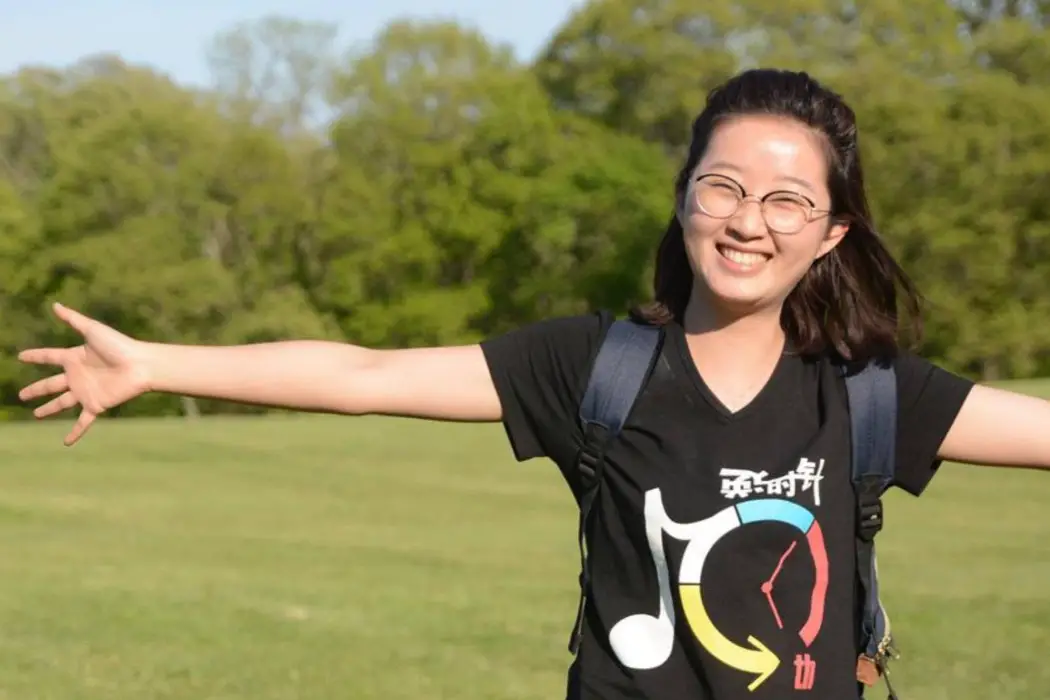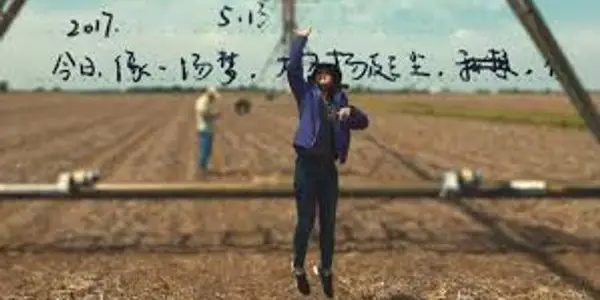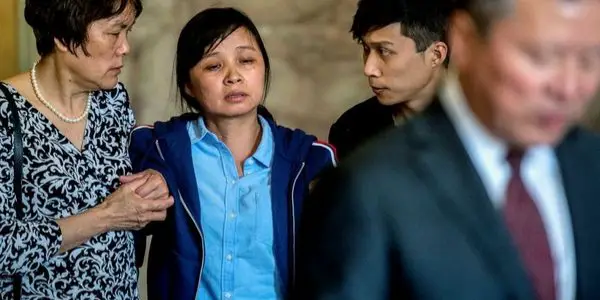SXSW 2020: FINDING YINGYING: A Heartbreaking Portrait Of Loss & Grief

Former film student from Scotland turned writer and film reviewer.
In many ways Shi ‘Jenny’ Jiayan and Zhang Yingying had lots in common. Both attended Peking University in 2016, before moving on to the University of Illinois in Champaign a year later. Both were a fish out of water, inexperienced in American culture, trying to adapt to this new life and follow their passions. There were so many parallels between these two young women that it would be surprising to know they never met, until you learn that the University of Illinois has the highest Asian population in America.
So when Yingying went missing in June 2017, Shi volunteered to assist with the search, documenting the journey along the way. What follows is a quietly devastating, inimitably haunting look at a fractured family desperately trying to find some solace amid the horror scenario that no doubt every parent fears.

Shi spends most of Finding Yingying following the close-knit Zhangs; an ordinary, unassuming family from Nanping who travel to America for the first time to find Yingying and bring her home. None of the Zhangs speak English, so most of the translating is done by both Shi and Yingying’s boyfriend Xiaolin as their search widens to encompass the entire Asian community of Champaign and beyond. What may seem like a classic True Crime story to begin with then quickly shifts into a more sombre, meditative piece as we spend time getting to know Yingying through diary excerpts read by Shi that reveal her to be a bright, articulate young woman with a positive outlook on life and big plans for her future.
Those diary excepts, coupled with a wealth of archival footage of Yingying, build a picture of who this woman was before she went missing. These moments are crucial to the story because, as we get to know Yingying better, we also see the devastation her disappearance has wrought on her family. It’s bone-chillingly effective and opens the door for the viewer to fully invest in the search, which plays out in real time – giving it an even more immediate, pulse-pounding feel.
‘Life is Too Short To Be Ordinary’
While the first third of Finding Yingying is centred on the eponymous Yingying herself, the narrative slowly – and insidiously – begins to shift: Yingying finds herself in a culture far less connected to one another than she expected. Diary excerpts show her frustration with the lack of community to be found in America, and as viewers we become well aware of her vulnerability in amongst a culture more concerned with survival and self preservation than forging bonds.
Life is too short to be ordinary, she asserts in her diary, with the kind of passion we’ve come to expect. Shi manages to get hold of CCTV footage of Yingying on the last day she was seen, mixing this in amongst news footage to create a slow, creeping sense of dread; we know Yingying to be a positive, upbeat, likely trusting young woman, and we know how easily that can be taken advantage of.
Once the revelations come thick and fast – and the truly shocking ones are saved for the last moments, where your jaw is likely to hit the ground in disbelief – the pace is slowed and the suspense cut. This could be seen as a mistake by some: a truly gripping thriller in the vein of, say, Making a Murder, would keep the suspense building and building in a bid to keep the viewer hooked, but Shi has a different idea. Far more devastating than any revelations about Yingying’s fate is watching the family attempt to find solace and closure in a world they don’t understand and in capturing this, Shi is masterful. She follows the family back to China where they attempt to continue their lives.
Yingying’s brother Yangyang feels the pressure from being the surviving child, barely following in the footsteps of his more successful sister, while Yingying’s parents Ronggao and Lifeng find their relationship strained as they seek to parcel out the blame for Yingying’s fate on each other. Shi captures these moments in a very bare, visceral way, allowing the camera to simply hover through the moments of despair with an unblinking assertion. One wonders how Shi felt in their midst, a family mourning the loss of a daughter whom Shi herself both bore a resemblance to and shared many commonalities with.
It is perhaps a missed opportunity that she rarely touches on her own role in this story and the Zhang family dynamics. Nonetheless these moments are arguably the most difficult to experience, given they are carried out with the kind of searingly honest insight into a family’s grief, which quickly calcifies to anger against America.
Culture Clash
There is a shocking moment in the final third of the movie where Yingying’s grandfather, venomous with fury beside his grieving wife, announces they will go back to China and kill two American students to avenge his granddaughter. Ronggao quickly silences him, all too aware of the camera currently pointing at them, but by this point the damage is done. This isolated moment captures a key theme underlying much of Finding Yingying; there remain many cultural differences between China and America, and a bridge that has not yet been gaped. At a time when international relations are shaky at best, an event such as this could be seen as a powder-keg.
Frequently there are moments where the Zhang family have brought their culture with them. Yingying’s aunt maintains a steadfast belief that Yingying couldn’t possibly be dead because ‘if she was dead she would have visited my dreams’, whereas Lifeng insists on speaking to the mother of a possible suspect because ‘we are both mothers trying to raise children’ and seems almost confused when she’s told the suspect’s attorney has forbidden it.
It’s disarming to see a family so vulnerable and alone in this new world, especially as the media circus descends upon them and they must grapple with the vagaries of the American legal system. This, too, causes much consternation, especially in the final third of the movie where the Zhangs begin to understand the key differences between justice in America and in their homeland.

Towards the end there is a wide eyed moment of hope: a minor character is this incredible story delivers a speech to the Zheng family in their native Mandarin, having had help from Shi to learn it. Her ability to convey her sense of sorrow and empathy to the family in a language she hardly understands helps bridge the gap between the two countries, and a moment of appreciation from the Zhengs is enough to bring a tear to the driest of eyes. Through all of the devastation, the angst, the guilt, the sorrow, there are still moments of connection – something that Yingying herself would surely have been overjoyed to see.
Conclusion
Finding Yingying is not an easy watch. Filmed with a raw, visceral quality, it captures a grieving family in their most vulnerable moments, and shines a light on the culture clash between two vastly different countries in ways that can be uncomfortable to see. However, get through that and you’ll find much depth and sweetness here; Shi has made a film which captures the purity of Yingying, and the love her family had for her. As well as this, Finding Yingying shows us how communities can rally together and provide care and comfort for one another. In times like these, that’s maybe the most important message of all.
Yingying’s story highlights the cultural differences between China and America. What is your opinion of this? Let us know in the comments below!
“Finding Yingying” was planned to premiere at SXSW 2020 before the festival was unfortunately cancelled. It is currently seeking U.S. distribution and has no release date.
Does content like this matter to you?
Become a Member and support film journalism. Unlock access to all of Film Inquiry`s great articles. Join a community of like-minded readers who are passionate about cinema - get access to our private members Network, give back to independent filmmakers, and more.













